
Despite talk of historic cooperation, the divide between Mexico City & DC is deepening
by Luis Rubio, political analyst and Chair of México Evalúa.
Mexico City and Washington are the capitals of two neighboring nations whose interactions are among the most dynamic and complex in the world — yet whose leaderships could hardly be more distant or contrasting. Both countries are about to begin negotiations to review their existing trade agreement, but their perspectives are so different that, if current trends continue, it is hard to imagine a successful outcome.
For nearly two centuries, Mexico and the United States maintained a relationship that fluctuated between closeness and distance, conflict and limited cooperation. The border evolved significantly over time—most notably through Texas’s independence and the U.S. invasion of 1847 — while the Mexican Revolution of 1910 further strained relations as Mexico sought U.S. recognition of the new revolutionary regime. The relationship was functional but tense, full of ups and downs.
In the 1980s, Mexico decided…

Sheinbaum at one year: A ‘complex’ operator emerges
by David Agren, writer-at-large.
President Claudia Sheinbaum swore the oath of office one year ago in a ceremony laden with symbolism as she became Mexico’s first female president. Flanked by female cadets, she took the sash from Infigenia Martínez – a prominent figure on the Mexican left and trailblazer for women in Mexican politics – as lawmakers in the lower house of congress chanted, “¡Presidenta!”
She unveiled the logo for her government, featuring an Indigenous woman. She assumed the presidency with a crushing electoral mandate, capturing more than 60 per cent of the popular vote in the June 2024 election – the highest total since the heyday of Institutional Revolutionary Party (PRI) rule in the 1970s.
But she arrived at the inauguration in the shadow of…


Sheinbaum’s first year has been a contradictory & muddled experiment
Around this time last year I was just arriving back in London, having traveled to Mexico for President Claudia Sheinbaum’s historic inauguration. While I encountered a handful of people already dismissive of Sheinbaum and contemptuous of her MORENA party, most I met were prepared to give the incoming president the benefit of the doubt. Many were hopeful that once in office she would prove as inspirational as the symbolism of her election promised. She had a great deal of political goodwill and capital to burn. One year on, her personal approval continues at stratospheric levels. But her consistently lower numbers on specific policy areas suggest a public aware of the tensions that mark her conflicted and contradictory first year in power.
The conventional wisdom is that on the big ticket items of trade and security Sheinbaum has scored some wins. Her management of the U.S.–Mexico relationship has been cautious but effective. With Donald Trump back in the White House, Mexico’s northern border could have become an economic choke point. Instead, Sheinbaum prioritized the survival of the USMCA, resisting confrontation and avoiding the rhetorical skirmishes her predecessor seemed to relish. In doing so, she not only kept U.S. trade threats at bay but also drew Canada closer as a quiet ally. Marcelo Ebrard has played the role of economic diplomat in chief, constantly negotiating with Washington, reinforcing Mexico’s stance as a stable partner in an era of volatile politics.
Yet a sizeable…
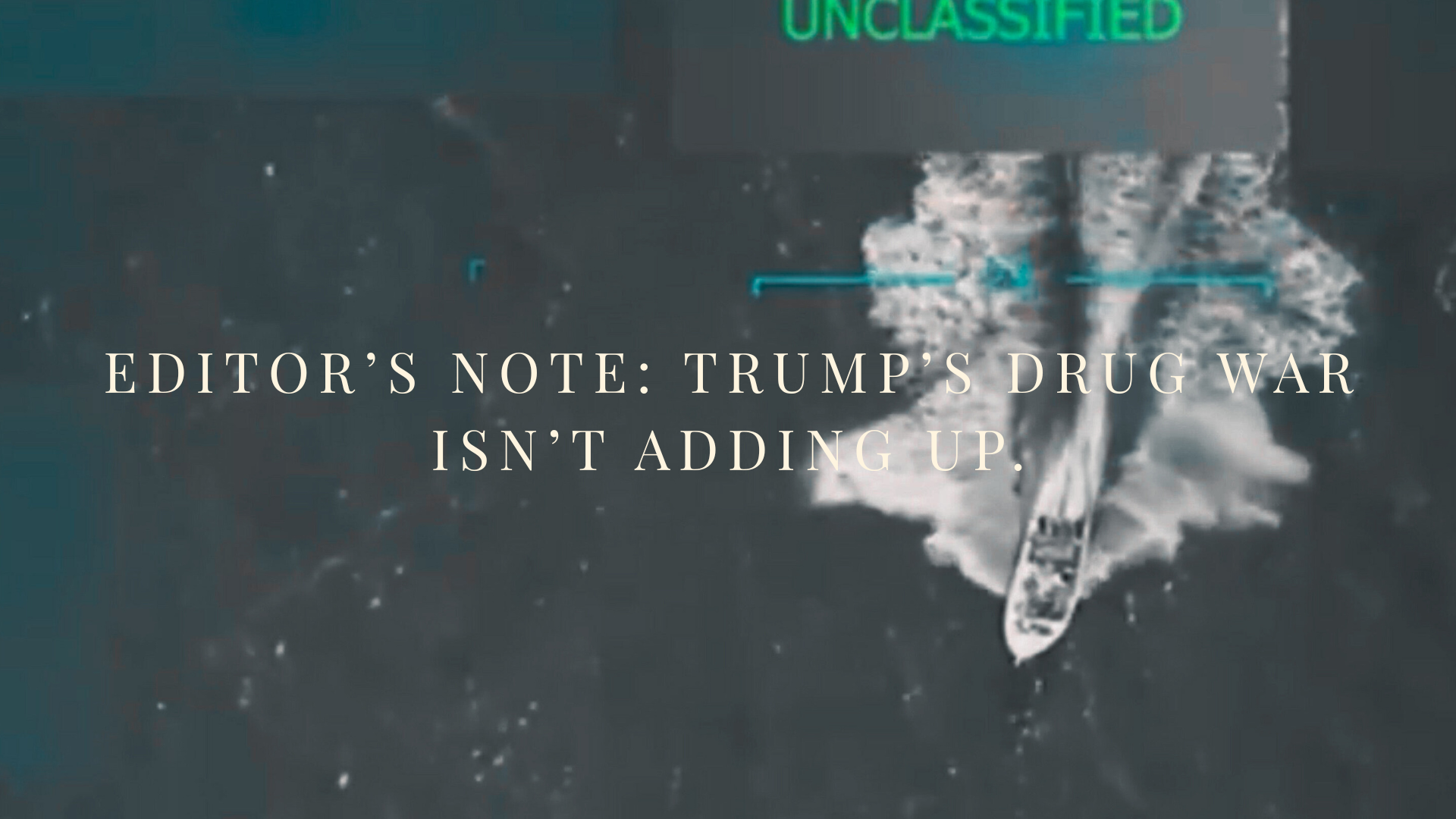
Trump’s drug war isn’t adding up
by Andrew Law, editor and founder.
I want to pause this week to point out an incongruity in the Trump administration’s supposed war on drug trafficking that is posing challenges around how we best cover this key topic. This isn’t my usual kind of column, but I hope you’ll bear with me.
The press — and I think most people generally on both sides of the border — see Trump as having gone hard on traffickers. The militarized southern border, the arm-twisting of Sheinbaum and her MORENA allies, downgrading Colombia, and of course, the bombing of passenger boats in the Caribbean. Last week, I highlighted rumors that the fuel theft scandal engulfing Mexico’s Navy (and discussed in more detail this week by Luis Rubio) is being propelled by leaks out of Washington. It all gives the impression of a major realignment of US security posture. But when you zoom in, it just doesn’t hang together…
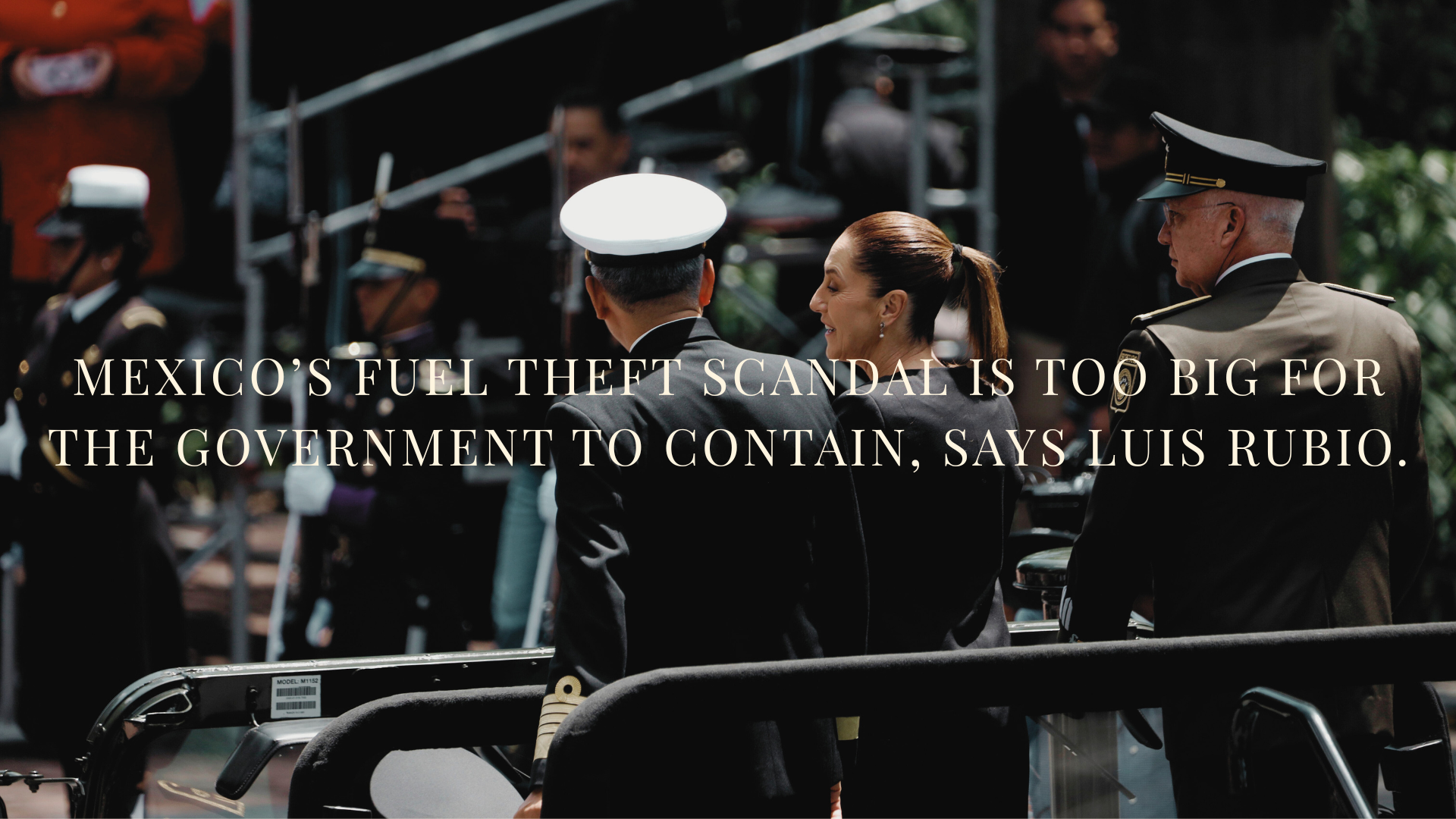
Mexico’s fuel theft scandal is too big for the government to contain
by Luis Rubio.
Gasoline theft is nothing new in Mexico. One need only recall the 1992 Guadalajara explosion, triggered by stolen gasoline dumped into the city’s drainage system after traffickers failed to sell their cargo during Holy Week. That was just the beginning, in fact, child’s play. Since then, two factors have changed: first, the sheer scale of the stolen-fuel market; and second, the deep entanglement between organized crime and government officials. The central question now is whether the sheer magnitude of this scandal—both in financial terms and in the corruption it exposes—will have significant political consequences.
Today, fuel theft in Mexico takes three forms. The first is the direct siphoning of gasoline from Pemex pipelines, most notably in Guanajuato, a hub crisscrossed by pipelines. The second is crude oil theft, followed by clandestine refining. The third, and most lucrative, is so-called tax-huachicol: gasoline imported but disguised on paper as crude oil to avoid paying taxes. A variation of this scheme involves exporting illegally refined gasoline to the United States, also tax-free, a trade with quite different, in fact geopolitical, implications, beyond the obvious criminal ones.
Illegal fuel sales have…
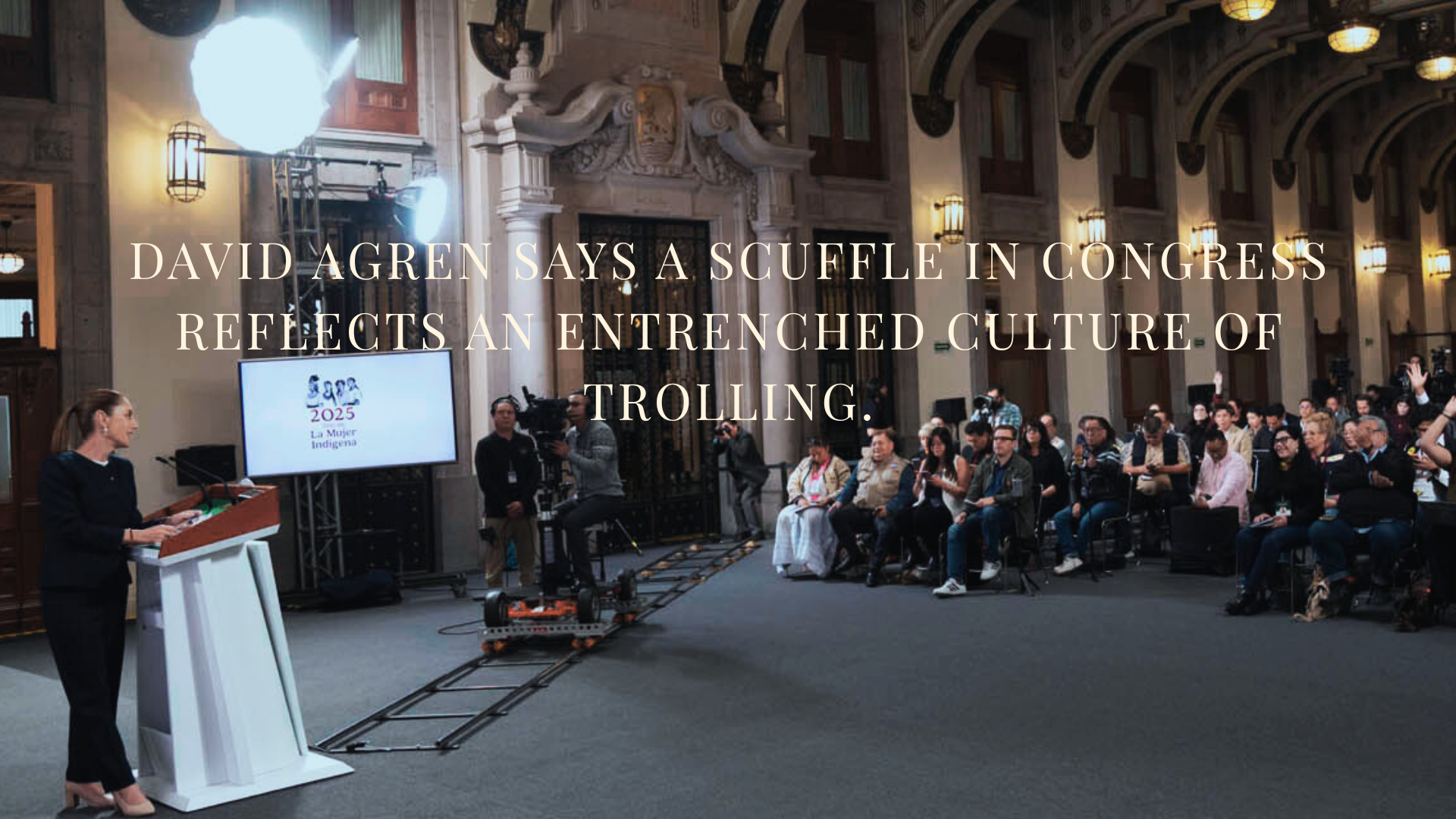
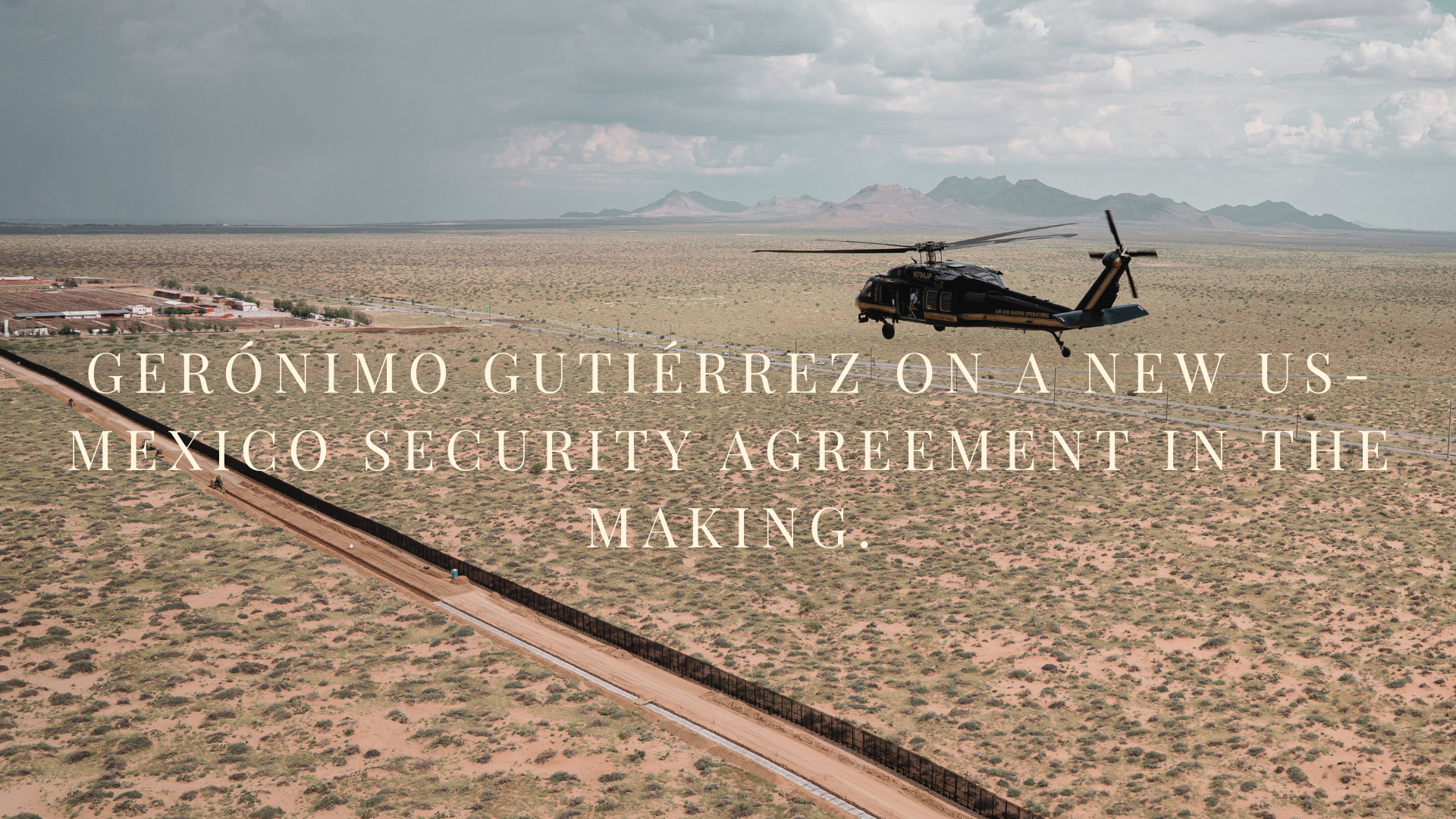
A new US - Mexico security agreement in the making
by Gerónimo Gutiérrez. Ambassador Gutiérrez served as Mexico’s Ambassador to the United States and as Mexico’s Deputy Secretary for Governance and Homeland Security.
—
Last week tensions between the US and Mexico governments surfaced again. President Sheinbaum denied the existence of an agreement between the Drug Enforcement Agency and the Mexican government. Her comments were directed towards a press release from the DEA announcing the launch of a “bold bilateral initiative to dismantle cartel gatekeepers and combat synthetic drug trafficking”. In my view, the rebuttal appears to be more the result of miscommunication than of the lack of willingness on both sides to strengthen cooperation. In fact, Sheinbaum confirmed that some form of security agreement is in the making and could be formalized in the next few weeks during a visit to Mexico of Secretary of State Marco Rubio. This was overlooked and could potentially be good news. Here are four takeaways of last week’s episode…
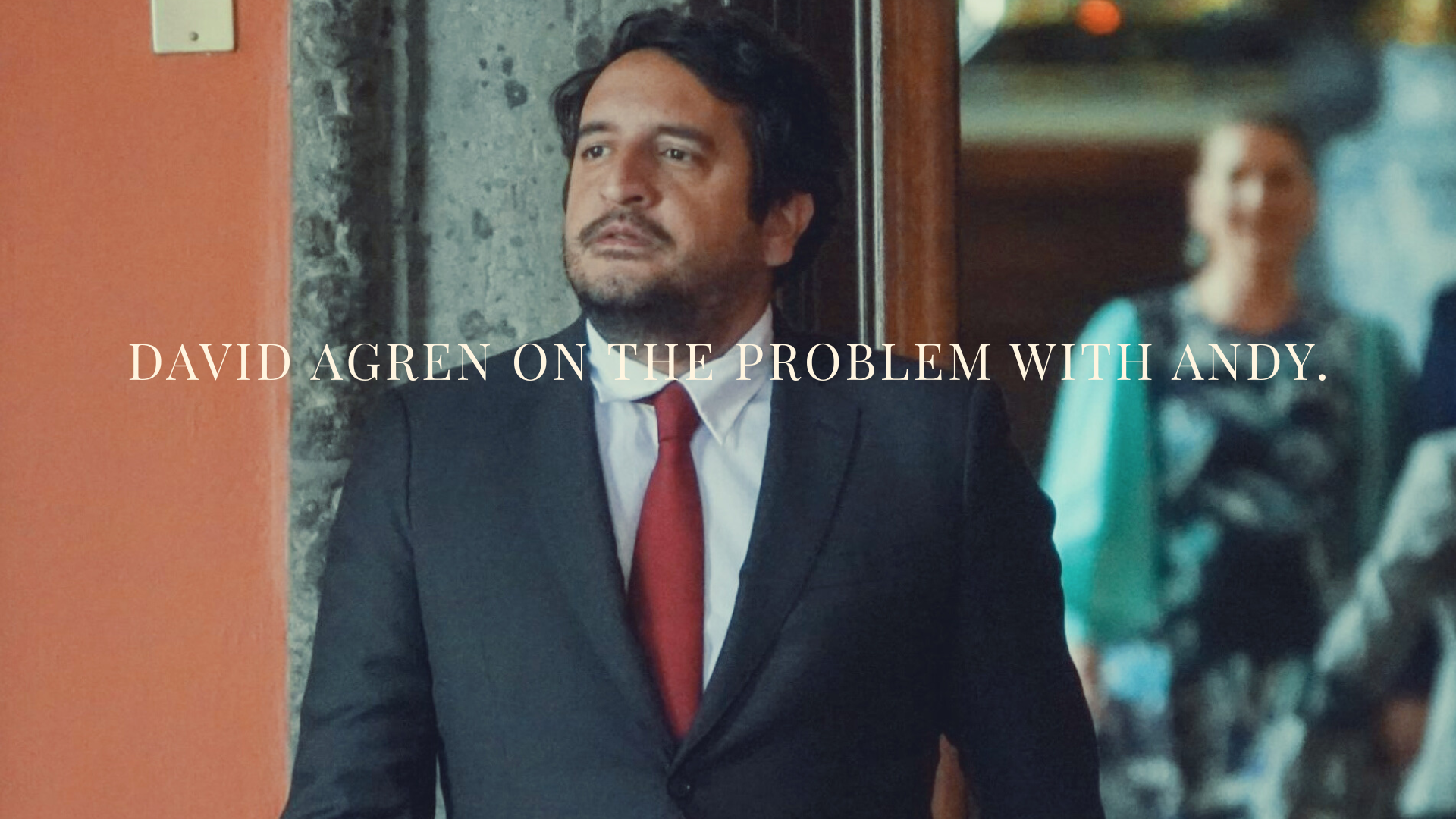

Spoiler alert: this gets complicated
In response to statements emanating from the Mexican presidential bully pulpit that with the United States “we are doing better than any other country,” that “we dialogue with respect and on equal terms,” and that “we coordinate, we collaborate, but we do not subordinate ourselves,”— and also in response to narratives about how Mexico and its president deal with Donald Trump — a steady dose of realism and a reality check - in Mexico’s Congress and across the media, business organizations, and society at large- are urgently required, and we need to carefully weigh where things stand.
While navel gazing in the current juncture of the relationship with the US may feed egos and polls, it’s also dangerous. It can make us short-sighted and cause us to lose sight of the reality looming beyond the horizon. This is especially true since 2018, when Mexico irresponsibly turned its back on the world and on its closest diplomatic and trading partner. But - with Trump having once again kicked the can down the road - Mexico now faces 90 days of uncertainty on tariffs. That’s on top of the looming threat of the unilateral US force against transnational criminal organizations, and a steady stream of pressure points from Washington on a wide-ranging number of issues across our shared bilateral agenda. At no time since her swearing in and — more importantly — during the six months that Sheinbaum’s government has coexisted with the new US administration, has such a national discussion been so urgent in Mexico.
What Mexican governments — both this one and the previous — have failed to grasp is…
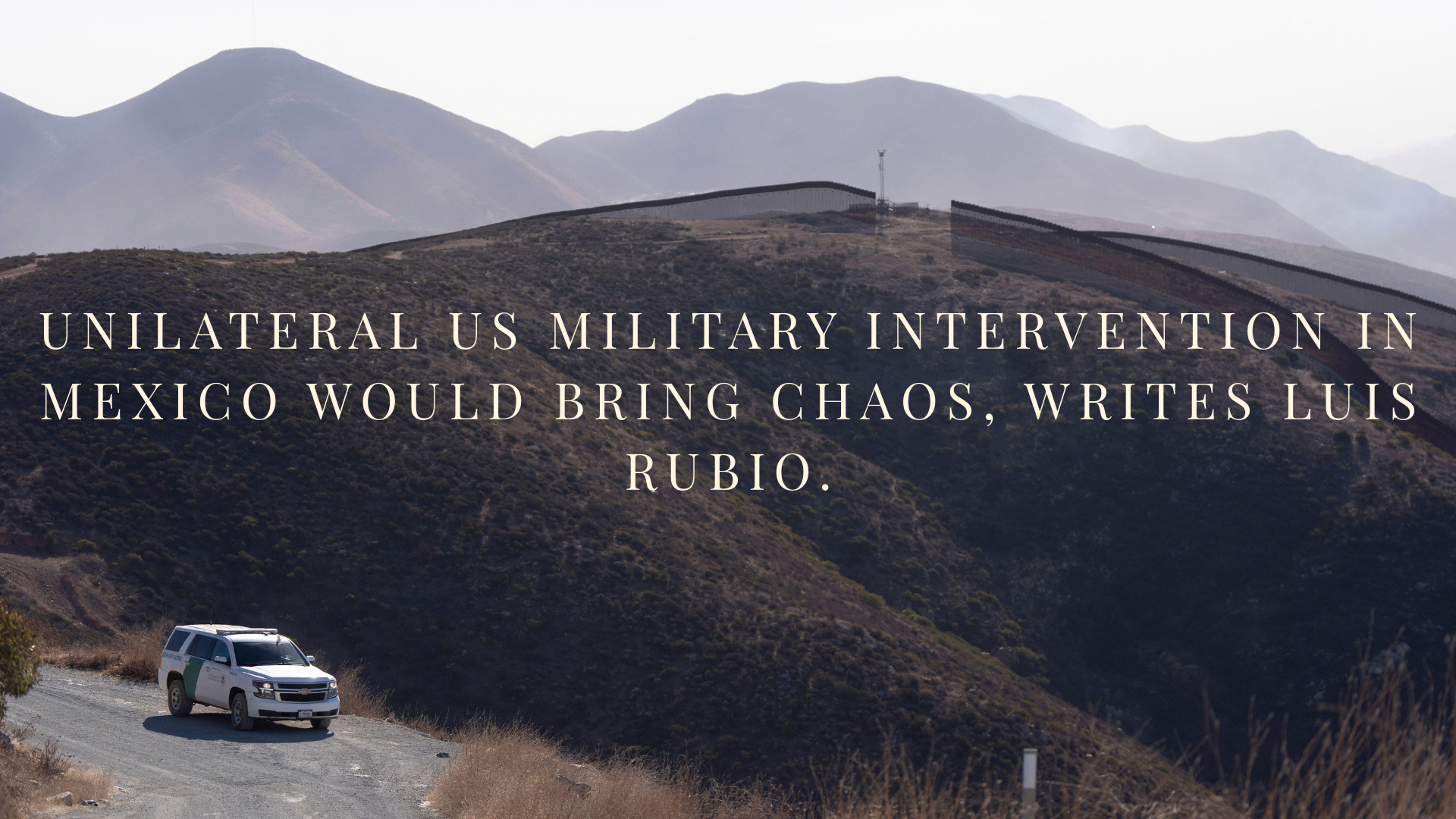
Unilateral US military intervention in Mexico would bring chaos
by Luis Rubio, political analyst and chairman of México Evalúa.
For months, talk has been circulating about a possible US military intervention in Mexico. The idea has gained traction here due to the presence of American intelligence ships in the Gulf of California and, more recently, the sighting of a drone over Valle de Bravo. The issue is also alive in the United States, at least since several Mexican criminal organizations were designated as terrorist groups. In fact, the debate has been simmering for years, as observers there note the growing chaos in certain regions of Mexico and the Mexican government’s seeming inaction. A recent video lays out, quite clearly, the perspective many Americans hold on the matter. No one knows if actual military action might occur — whether directly on the ground or indirectly from the air — but it is a subject that deserves careful analysis.
The video (viewable below) features Joshua Treviño at 35 seconds in. Treviño is a former US Army adviser now with America First, introduced — incorrectly — as a seasoned observer of US–Mexico relations. As I argue below, he has little to no understanding of the situation on the Mexican side…

